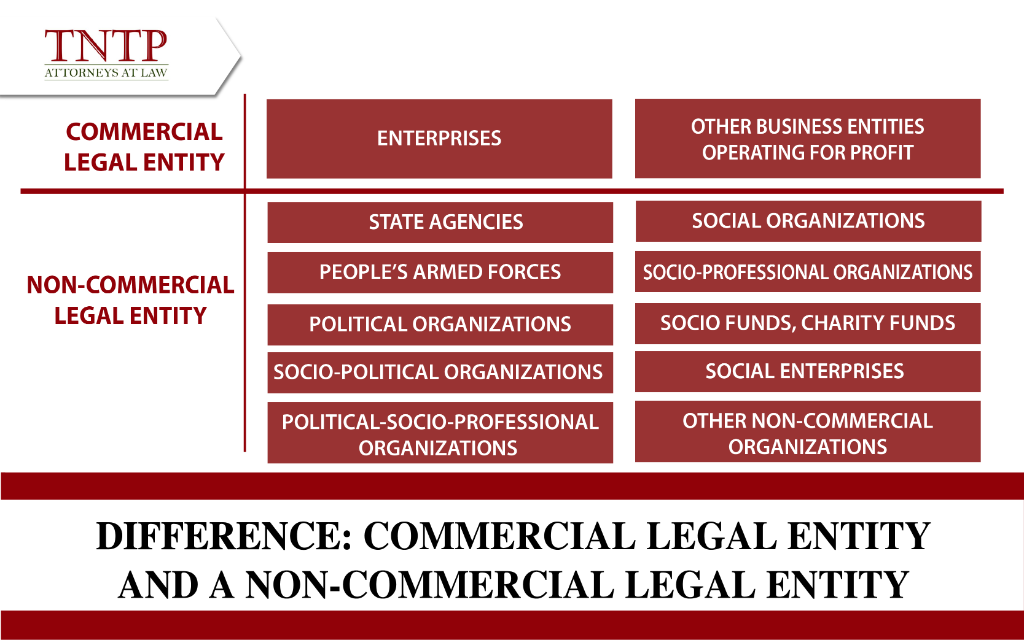A legal entity is an organization with independent legal status, which can participate in economic, political, social activities, etc. in accordance with the law. Legal entities have two forms: commercial legal entities and non-commercial legal entities. So what is the difference between a commercial legal entity and a non-commercial legal entity? In this article, we will analyze the difference between them.
1. Concept of legal entity
According to Article 74 of Civil Code 2015, an organization is recognized as a legal entity when it satisfies the following 04 conditions:
First, being established in accordance with the law
Depending on the type of legal entity being a partnership, limited liability company or joint-stock company, state agency, socio-political organization, etc., the subject shall carry out the procedures for registration of establishment of a legal entity in accordance with the provisions of the law. The organization has legal status from the date of issuance of the Certificate of Establishment.
Second, having an organizational structure as prescribed in Article 83 of Civil Code 2015
An organization that would like to become a legal entity must have a charter or a decision to establish a legal entity. In the charter and establishment decision, there must be specific provisions on the organization, tasks and powers of the executive body of the legal entity.
Third, having assets independent of other individuals or legal entities and taking responsibility for their own property
Legal entities are required to have independent assets to establish rights and obligations in their operations. Only when having independent assets can the legal entity be responsible with its own property for the transactions, rights and obligations established by it.
Fourthly, independently participating in legal relations in its own name
A legal entity is established to perform transactions and establish rights and obligations on behalf of one or a group of subjects. When entering into legal relations, the legal entity will act on its own behalf and not on behalf of any other individual or organization. The legal representative of the legal entity shall represent it in legal relations. This person can participate on his/her own or authorize someone else to do it for him/her.
2. The difference between a commercial legal entity and a non-commercial legal entity
| No. | Criteria | Commercial legal entity | Non-commercial legal entity |
| 1 | The main objective of the establishment | Seeking profits and its profits shall be distributed to its members | Not seeking profits and its possible profits are not distributed to its members |
| 2 | Type of legal entity | – Enterprises
– Other business entities operating for profit |
– State agencies
– People’s Armed Forces – Political organizations – Socio-political organizations – Political-socio-professional organizations – Social organizations – Socio-professional organizations – Social funds, Charity funds – Social enterprises – Other non-commercial organizations. |
| 3 | Scope of governing law | Civil Code, Law on Enterprise, Law on Cooperative and other relevant laws | Civil Code, Law on Enterprise, Laws on the organization of the state apparatus and other relevant laws |
Above is the article “The difference between a commercial legal entity and a non-commercial legal entity”. We hope this article is useful to you.
Best regards,








